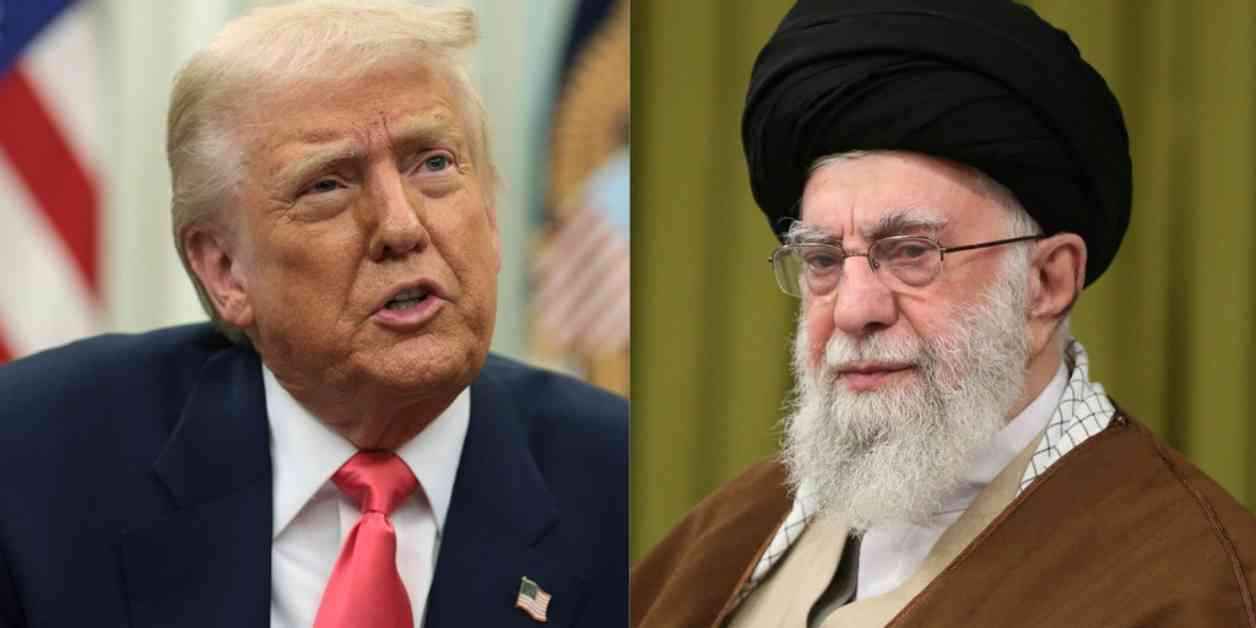Iran’s Supreme Leader Ali Khamenei Shuns Nuclear Talks with US
Iran’s Supreme Leader Ayatollah Ali Khamenei made a striking statement on Saturday, firmly rejecting any possibility of negotiating a nuclear deal with the United States. His refusal was rooted in the U.S.’s insistence on restricting Iran’s missile capabilities and influence, which he perceived as an attempt to exercise dominance rather than resolve issues.
Unveiling his thoughts through a series of posts, Khamenei criticized the U.S. government for its coercive tactics, alleging that negotiations were merely a guise for imposing new demands rather than fostering genuine dialogue. He highlighted that the demands put forth by the U.S. pertained to Iran’s defense capabilities and international influence, painting negotiations as a tool to advance the U.S.’s agenda.
Challenging U.S. Demands
In his online posts, Khamenei articulated his stance on the unreasonable demands imposed by the U.S., including restrictions on interactions, production activities, and missile range limitations. He questioned the feasibility and fairness of adhering to such constraints, underlining his skepticism about the U.S.’s intentions behind these demands.
Khamenei’s statements came hot on the heels of President Donald Trump’s communication to him, emphasizing the urgency of securing a nuclear agreement with Iran. Trump hinted at potential military repercussions if a deal could not be reached, setting the stage for heightened tensions between the two nations.
Expert Insights and Warnings
Behnam Ben Taleblu, director of the Foundation for Defense of Democracies’ Iran program, cautioned Trump to tread carefully in his interactions with Iran, warning against falling into a diplomatic trap laid by Tehran. He underscored the strategic maneuvering by Iran to prolong negotiations as a means to dilute pressure and advance its nuclear ambitions while evading military intervention.
Furthermore, Biden’s National Security Adviser raised concerns about Iran’s vulnerable position potentially driving it towards nuclear weapon development. The U.S. intensified its economic sanctions through the “maximum pressure” initiative, aimed at crippling Iran’s oil exports and curbing its nuclear aspirations.
As the diplomatic deadlock persists, the U.S. commemorates the 18th anniversary of retired FBI Special Agent Robert “Bob” Levinson’s abduction from Kish Island, Iran. The FBI continues to offer substantial rewards for information leading to Levinson’s whereabouts, reflecting the ongoing efforts to resolve his disappearance and hold the Iranian regime accountable.
Closing Thoughts
In an ever-evolving geopolitical landscape, the standoff between Iran and the U.S. underscores the complex interplay of power dynamics, security concerns, and diplomatic maneuvering. As both nations navigate the delicate balance of negotiations and deterrence, the specter of a nuclear showdown looms large, underscoring the high stakes involved in international relations. The fate of Iran’s nuclear program remains uncertain, as the world watches with bated breath to see how this geopolitical chess game unfolds.


